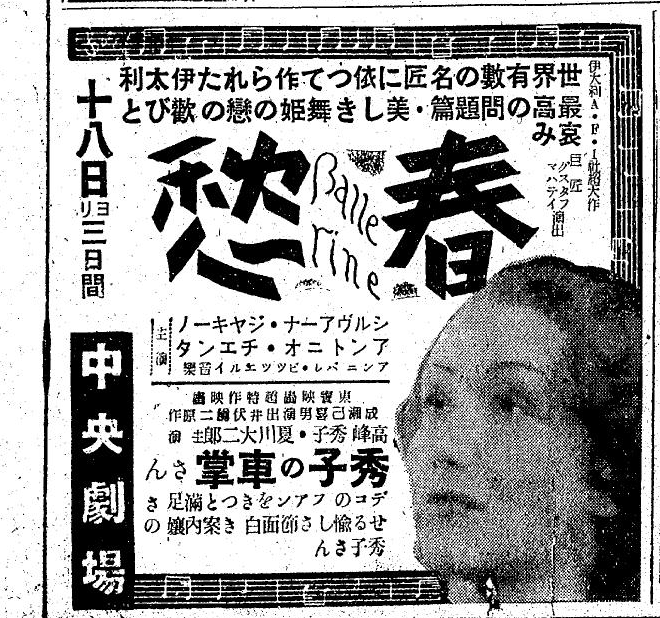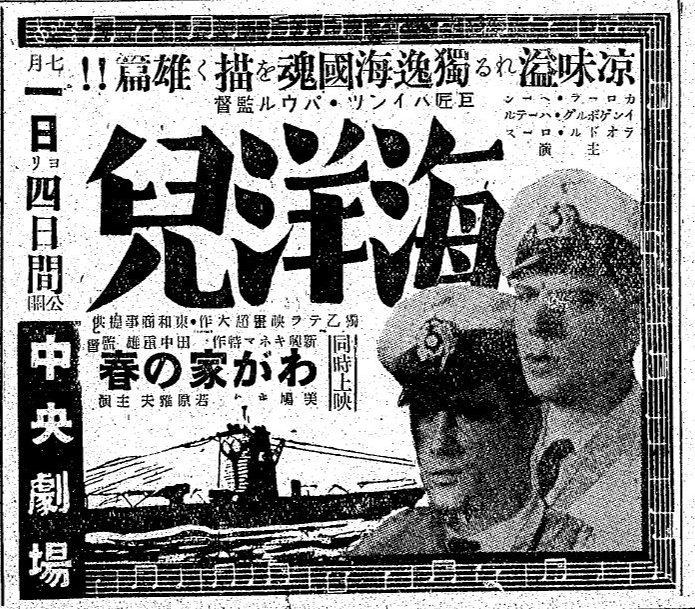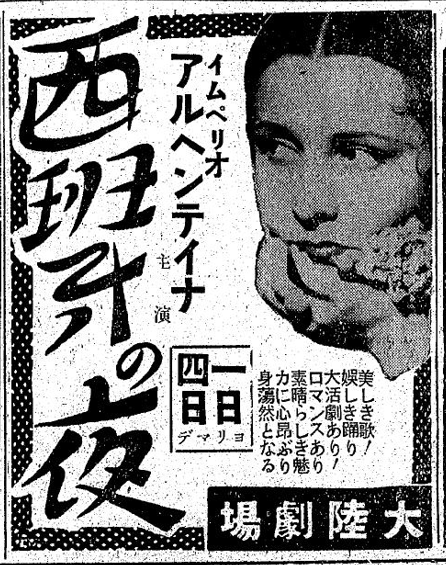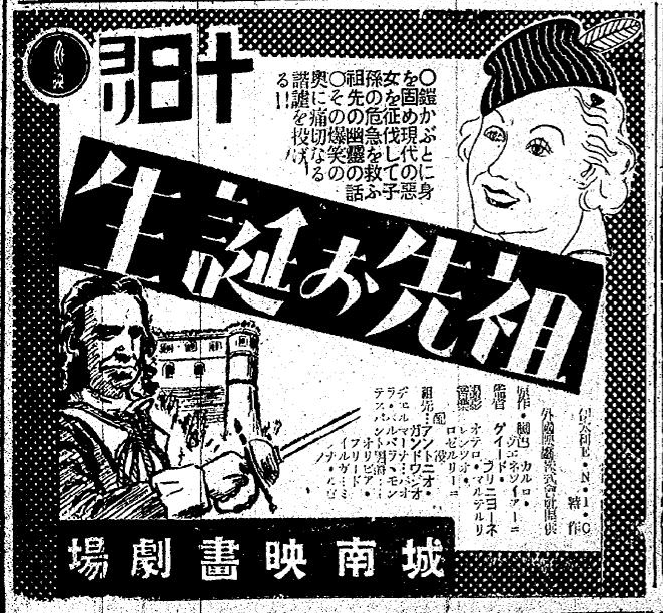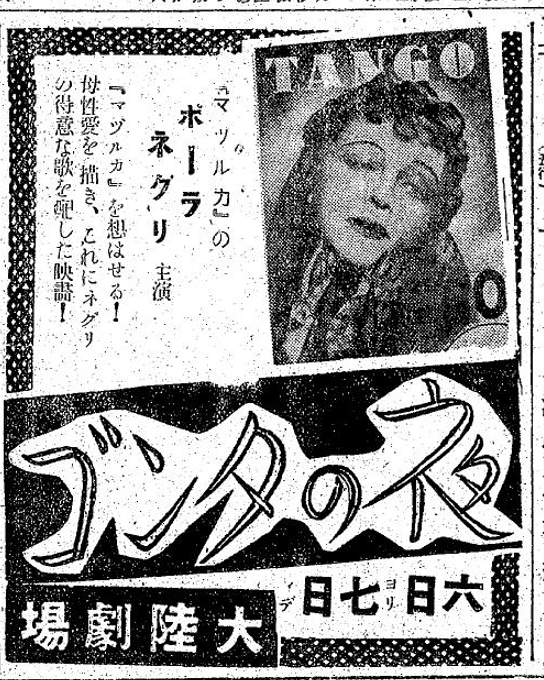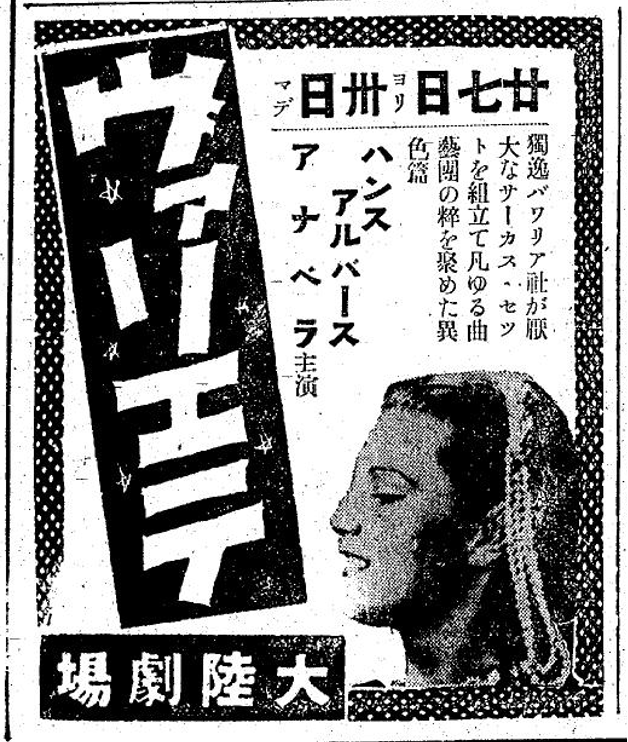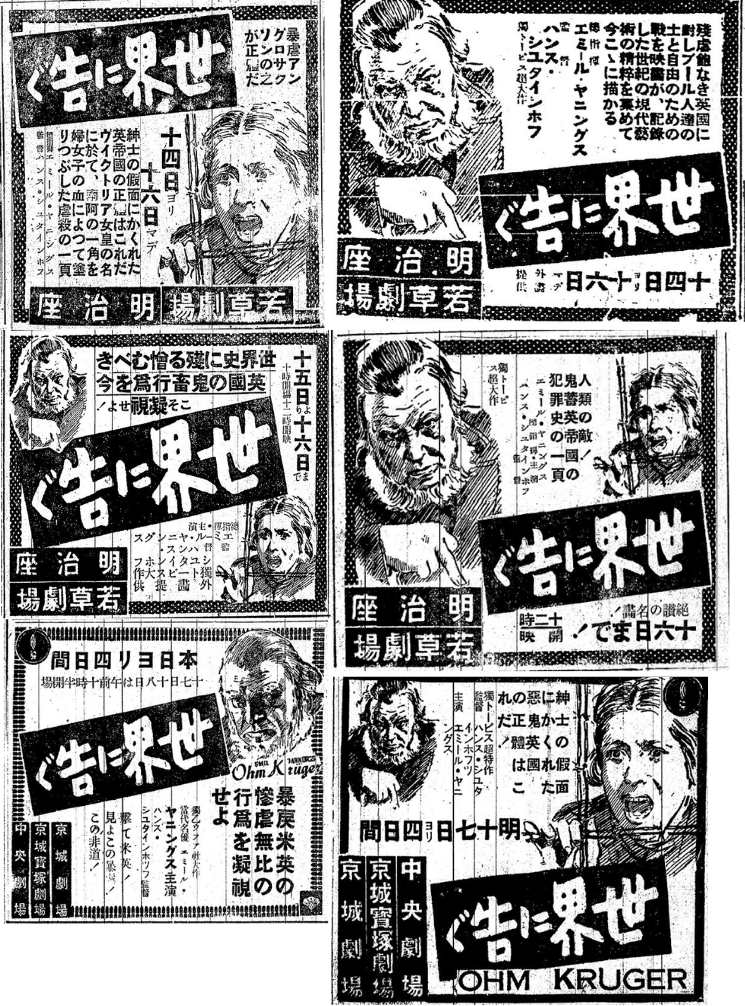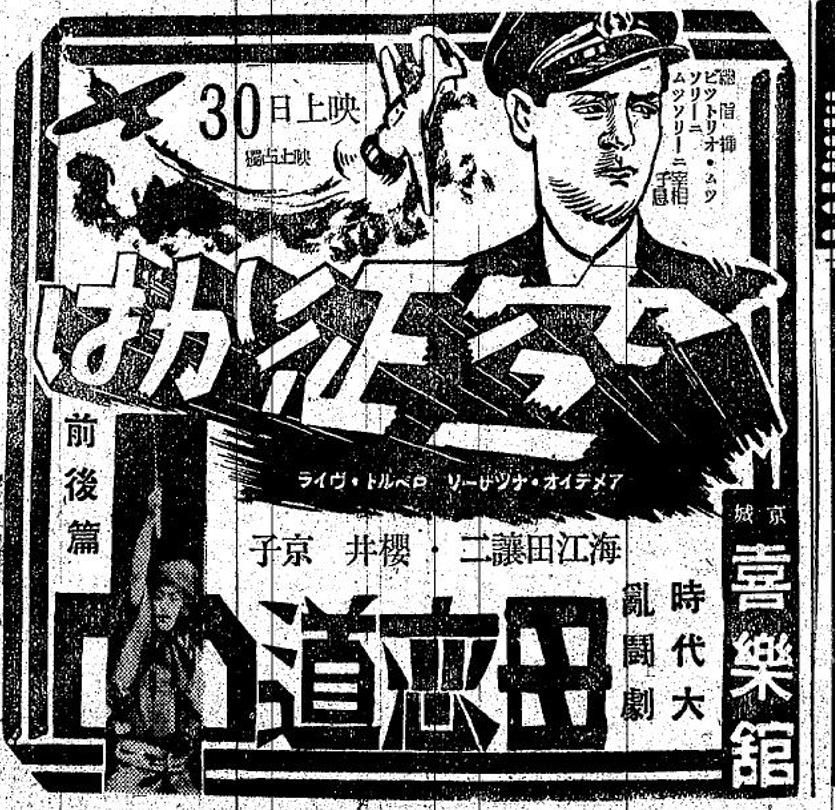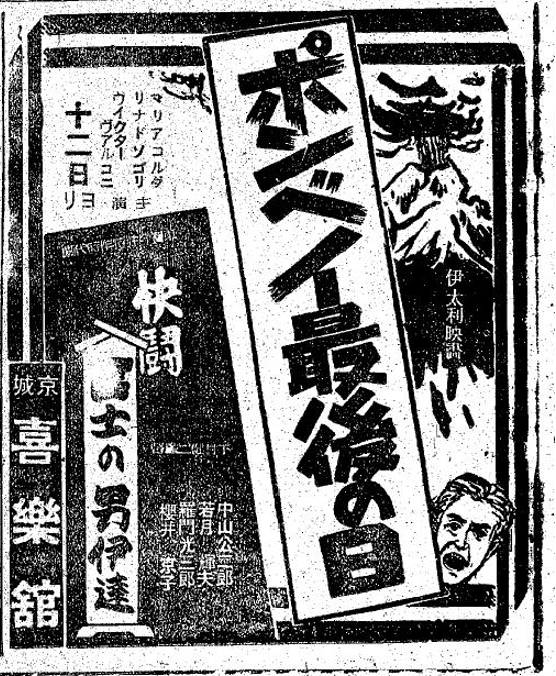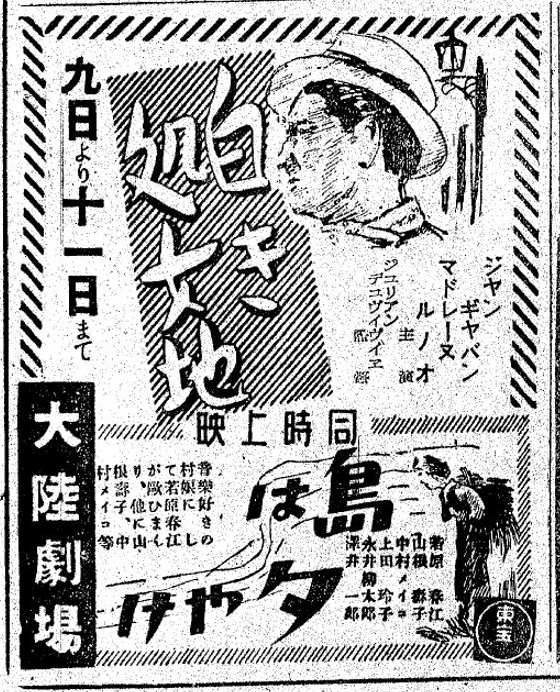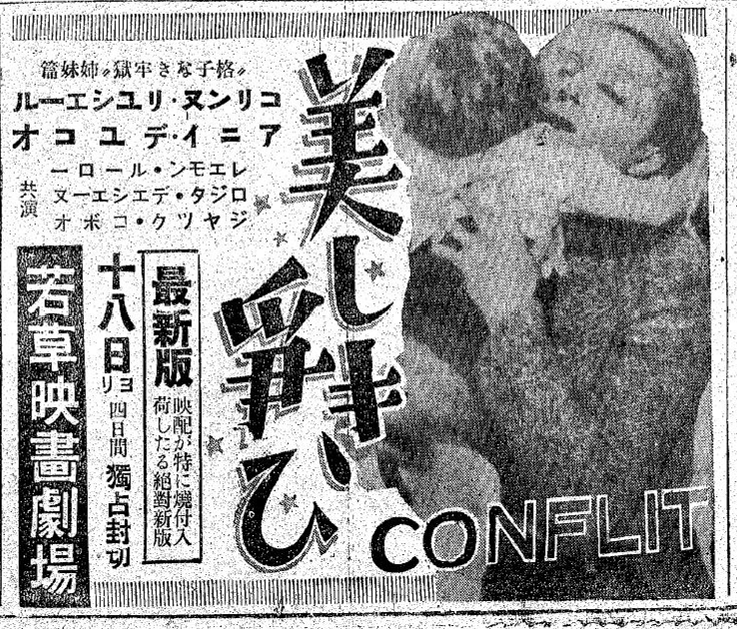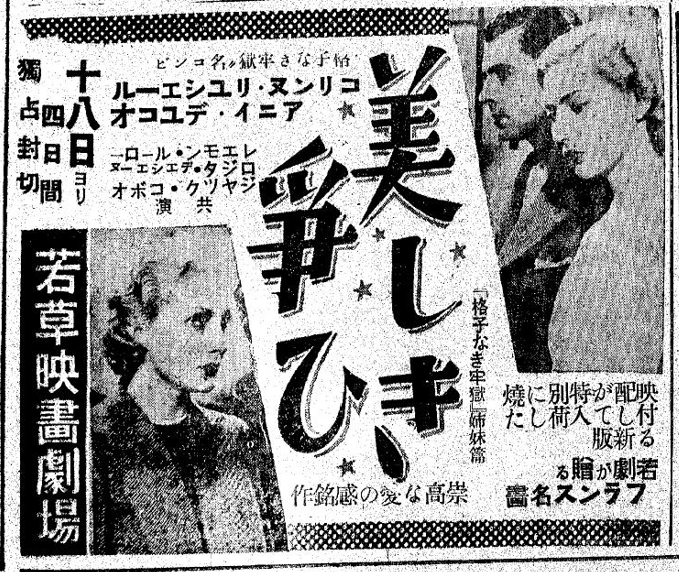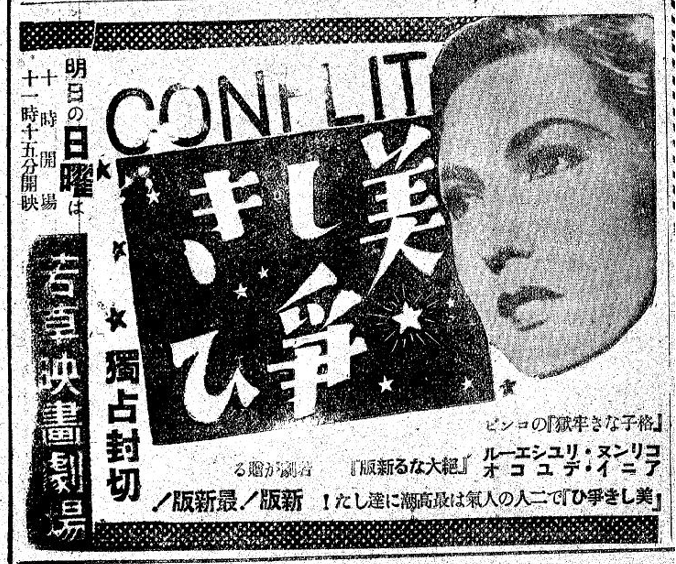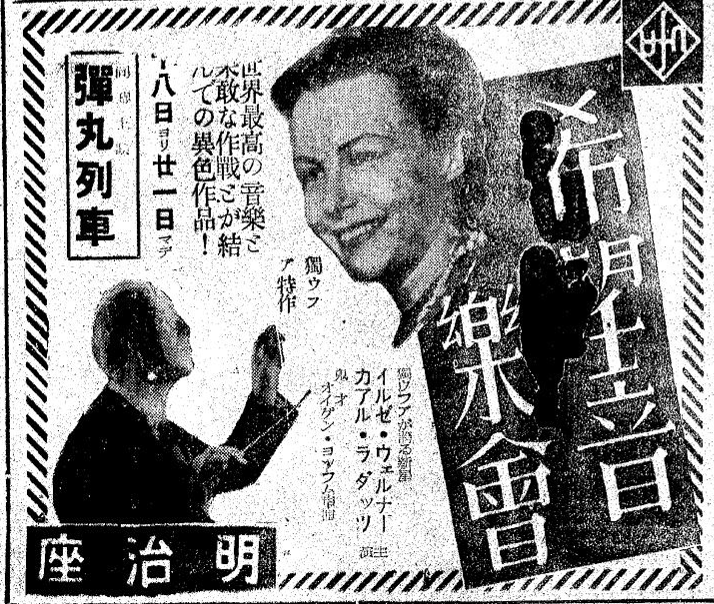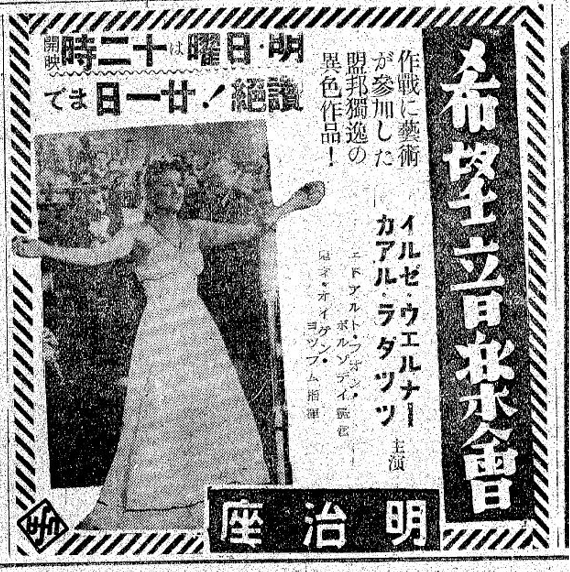This is my review and analysis of a deeply unsettling Imperial Japanese propaganda film, Love and Vows (愛と誓ひ), which was screened in late May 1945 with the aim of reaching as many Koreans as possible in the final months of the war. The film was part of a larger effort to emotionally manipulate Koreans into sacrificing their lives for the Empire as Japan prepared for an Allied invasion. To ensure the message was driven home even to those who might have missed the screening, the authorities serialized a novelized version of the film’s story in the Gyeongseong Ilbo (Keijo Nippo) newspaper — I have transcribed and translated that version below. The entire film can still be viewed today, with Korean subtitles at the Korean Film Archive, or without subtitles on YouTube (where it has been uploaded by @날보라-l9u, a Korean vlogger who expresses misguided, revisionist views sympathetic to Imperial Japan). I have provided some links to key scenes in the YouTube video for reference as timestamps.
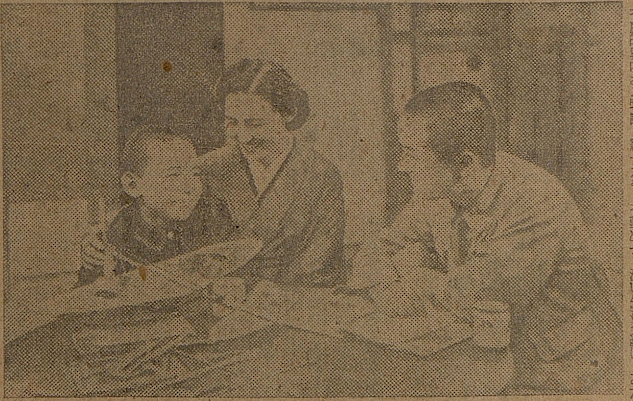 |
| Shiraishi Keiko with her biological son Toyoo (left) and her adopted Korean son Kim Young-ryong (right). |
In the final year of World War II, as Imperial Japan braced for an expected U.S. invasion of both the Japanese mainland and the Korean peninsula, it embarked on an all-out propaganda campaign to prepare the Korean population for what was intended to be a suicidal last stand. The authorities planned to mobilize nearly every able-bodied man, woman, and child into citizen militias under direct Imperial Army command to resist the Allies to the death. To convince the Korean people—many of whom were deeply resentful of decades of exploitation, abuse, and humiliation under colonial rule—to sacrifice their lives for Imperial Japan, the state turned to cinema as a powerful tool to appeal to emotion and instill the required mindset.
One of the centerpiece works of this effort was the propaganda film Love and Vows (愛と誓ひ), directed by renowned filmmakers Imai Tadashi (今井正) and Choi In-gyu (崔寅奎). This film was produced with the full backing of the Imperial Navy and the Governor-General’s Office. It ran for 1 hour and 14 minutes and featured an all-star cast including Takada Minoru (高田稔) as Editor-in-Chief Shiraishi, Takehisa Chieko (竹久千恵子) as Mrs. Shiraishi, Dok Eun-gi (독은기, 獨銀麒) as Lieutenant Murai, Kim Shin-jae (김신재, 金信哉) as Murai’s widow, and Shimura Takashi (志村喬) as Murai’s father.
Love and Vows was first shown at two invitational test screenings (試写会) at the Bumingwan Hall (府民館) in Seoul on May 23, 1945. Beginning on May 24, it was screened across theaters throughout Korea until June 1. Special group discounts were offered to neighborhood Patriotic Groups (愛国班) presumably so their leaders could explain the film’s propaganda message to the audience and, where necessary, translate the dialogue for those Koreans who did not understand Japanese.
The film’s narrative centers on Kim Young-ryong (김영룡), a Korean orphan raised by a Japanese foster family who becomes inspired to volunteer for the Imperial Navy after learning about a heroic Korean kamikaze pilot, Lieutenant Murai. In the early scenes of the film, Murai flies his Kamikaze plane into a U.S. aircraft carrier and make the news headlines (6:24). Murai is a thinly fictionalized version of the real-life Korean kamikaze pilot Matsui Hideo or In Jae-ung (인재웅, 印在雄) who died on November 29, 1944. The orphan visits Murai’s school, playground, and home, absorbing reverence for the deceased hero, and listens solemnly to Murai’s recorded final words on a vinyl record. The story is crafted to venerate Murai as a god-like figure, but also to present him as an accessible role model so ordinary Koreans could imagine themselves becoming suicide fighters for Imperial Japan. Indeed, Korean Kamikaze heroes dominate the pages of Gyeongseong Ilbo (Keijo Nippo) newspaper in 1945, and reverential, hagiographical accounts of their humble lives are published in exquisite detail to exalt them as role models for the Korean people. This is highly evocative of the personality cult dynamics seen in later North Korean propaganda.
Stories of Korean orphans raised by adoptive Japanese parents were a common allegorical device in Imperial Japan’s colonial propaganda. These narratives framed Japan’s rule over Korea as the benevolent adoption of a troubled and wayward child — with Japan portrayed as the patient, magnanimous parent who takes in and raises the orphan despite his misbehavior or attempts to run away. Such imagery served to justify the brutal suppression of the Korean independence movement, casting it as the necessary discipline of a child who did not yet understand what was good for him. In Love and Vows, this theme is central: Young-ryong, the orphaned Korean boy, tries to run away, but the kindly Shiraishi forgives him, takes him back, and ultimately wins his loyalty by touching his heart. Shiraishi also does not shy away from using corporal punishment to beat Young-ryong for cowardice (1:05:29), as a way to shape him into an honorable Imperial soldier.
The plot also includes a speech to young Korean students by Shiraishi proclaiming that anyone, through effort and loyalty, can become as great as Murai. The film also features a Japanese teacher teaching an eager Korean student the motto 七生報国 (“even if I am reborn seven times, I will dedicate myself to serving my country each time”), attributed to medieval Japanese hero Kusunoki Masashige, and a quote from the Taiheiki: “Because it is the nature of battle, you should not necessarily judge the entire war by the outcome of a single skirmish (合戦の習にて候へば、一旦の勝負をば必しも不可被御覧),” encouraging Koreans to persevere despite Japan’s mounting defeats (21:14).
The serialized short story version of the film that appeared in Keijo Nippo (京城日報) differs from the surviving film print in key ways. In the novel, the orphan’s indiscretion is getting drunk on whiskey, while in the surviving film, the orphan's indiscretion is sabotaging the fuel of a bus carrying Korean recruits. The emotional scene where the orphan cries out Omoni (어머니, “Mother”) in anguish at not being punished like the biological son—highlighting the message that Imperial Japan is a mother figure to Koreans—is absent in the surviving film, possibly because that copy was an early screen test that was not used for general release. This copy survived only because it was archived at the Tokyo National Film Center and later transferred to the Korean Film Archive before being uploaded to YouTube by @날보라-l9u.
The authorities spared no expensive in ensuring this film would move Korean audiences. They enlisted top directors and actors and devoted scarce resources to create the special effects depicting the exploding U.S. aircraft carrier, to create a high-quality production capable of persuading Koreans on an emotional level to die for Imperial Japan. The story was calculated to instill loyalty, glorify self-sacrifice, and portray discipline from colonial masters as an expression of parental love—framing the empire as a caring Omoni for its Korean subjects. Coincidentally, North Korea similarly educates its citizens to call its Party their Omoni, promoting the song "당이여 나의 어머니시여 (The Party is My Mother)".
The film ends with Young-ryong holding hands with Shiraishi Keiko and Murai's widow Yeong-ja in a striking pose symbolizing Japanese-Korean unity (1:12:14), followed by a printed message, “Even today, divine falcons are sinking enemy ships to the bottom of the Pacific Ocean. Who will follow them and defeat the enemy? You will! You are going to do it! (神鷲は今日も敵を太平洋の底に沈めつつある。これに続いて敵を破るもの、それは君達だ。君達がやるのだ)” (1:13:56)
[Translation]
Gyeongseong Ilbo (Keijo Nippo) May 23, 1945
Long-Awaited Film “Love and Vows”
Preview Today at the Bumingwan Hall
Under the guidance of the Imperial Headquarters Navy Press Department and with the support of the Ministry of the Imperial Navy, the Korea Film Company began filming the naval motion picture Love and Vows on March 15. The production has now been completed. On the 23rd, two invitational preview screenings will be held at the Bumingwan Hall, one during the day and one at night.
This film depicts the spirit of the Korean Navy Volunteer Soldier System and dramatically portrays the true spirit of the Special Attack Units through an engaging story. It brims with warm humanity as unfortunate people help one another, aiming to revive the love that is apt to wither during wartime.
In summary: Kim Young-ryong (김영룡, 金英龍), a Korean orphan who lost his parents and siblings at a young age, was taken in by Editor-in-Chief Shiraishi of the Keijo Shimpo Newspaper out of compassion. While working as an office boy at the newspaper, he led a warm, peaceful life. Assigned to gather material for an article, he visited the home of Lieutenant Murai, a member of the Special Attack Forces. Together with Murai’s widow, Yeong-ja (영자, 英子), he walked to various places such as the classroom where Murai had studied (36:03), and the simple fields and riverbanks where Murai played as a boy. Upon returning, lost in quiet reflection, they found that a phonograph record had arrived, containing a recording of Murai’s voice on the night before his sortie (40:16).
“Now the time has come. Just as you instructed, I will go with a smile,” rang out Murai’s bright voice (41:42). Overwhelmed by a solemn feeling, Young-ryong was frozen in place. Supported by the special affection shown by the widow Yeong-ja, Young-ryong spent a few days in a dreamlike state. Profoundly impressed, he returned home and wrote an excellent article, and with firm resolve Young-ryong followed in Murai’s footsteps by volunteering for the Navy. [Photo: A scene from Love and Vows]
Gyeongseong Ilbo (Keijo Nippo) May 25-27, 1945
The Story of the Film “Love and Vows”
Love and Vows was completed recently and released to the public on the 24th. The film portrays the determination of Korean youth to serve at sea in response to the Naval Special Volunteer Soldier System.
 |
| Mr. Shiraishi (right) meeting Lieutenant Murai on the rooftop of the offices of Keijo Nippo Newspaper. |
(1)
“The sky over Korea is as beautiful as ever, is it not?”
“Yes. But this beautiful sky connects to the great skies of the battlefield where you will go.”
Shiraishi Goro, Editor-in-Chief of the Keijo Shimpo Newspaper, said this with deep emotion as he gazed up at the clear sky after taking a rooftop photograph of Lieutenant Murai, the only son of his former mentor, who was leaving for the front. Suddenly noticing a boy peeking out from behind a wall, he exclaimed sharply, “Is that you, Young-ryong? Where have you been wandering?” and strode over (4:26).
This boy was Kim Young-ryong, an orphan whom Shiraishi had picked up from the backstreets of Jongno four years earlier and taken into his home. Young-ryong now worked as an office boy at the newspaper while attending night school, but his vagrant habits remained, and after a minor mistake a few days earlier, he had run away from home.
Hearing the circumstances, Lieutenant Murai said, “That will not do. You must not cause such worry. It is now your turn to be strong,” and clapped Young-ryong on the shoulder. He then asked Shiraishi, “How about taking one more photo of us together, for both our sakes?”
Shiraishi, sensing the Lieutenant’s firm resolve in his words, “That will not do ... it is now your turn to be strong,” raised his camera once more to capture the pair standing side by side (5:41).
Soon after, news was announced of the glorious deed of the Kamikaze Special Attack Unit, and among the names was Murai Shinichiro—Lieutenant Murai (7:29).
(2)
“Do you know the name of the boy standing next to my late husband?”
 |
| Yeong-ja is holding her son, to her left is the nanny, and Shiraishi Keiko is sitting |
When Shiraishi's wife visited Murai’s widow, Yeong-ja, bringing the photograph of Lieutenant Murai taken at the newspaper office, she whispered this. Yeong-ja, who lost her parents during the Shanghai Incident and was separated from her five-year-old brother Kim Young-joo (김영주, 金英柱) when she was repatriated to Korea, felt the boy’s face somehow resembled that of her lost brother (19:36).
“This boy is an orphan we took in. His name is Kim Young-ryong.”
Mrs. Shiraishi replied sympathetically and promised to have her husband arrange for Young-ryong to visit.
Meanwhile, at Murai’s former school, Shiraishi addressed the students: “When you hear of divine falcons (kamikaze pilots), you may think of them as men born great, beyond your reach. But that is not so. If you become fine soldiers, you too can become divine falcons. Study well every day and strive to become fine soldiers.” Thus, Shiraishi appealed to their young hearts with words that were easy to understand, encouraging them to follow in Murai's footsteps (25:18).
That night, returning late from Murai’s home, Shiraishi's wife Keiko found their son Toyoo and Young-ryong in an uproar, having drunk whiskey mistaking it for wine.
“Why would you do such a thing while your mother was away?”
Mrs. Shiraishi, who arrived home earlier than her husband, scolded Toyoo harshly but did not scold Young-ryong. Expecting to be rebuked, Young-ryong felt all the more lonely for the lack of scolding, and, unable to bear the solitude of his longing for affection, retreated to his room. There, he quietly wept, calling out for his “mother.”
Later, when Mr. Shiraishi heard the story from his wife Keiko and peeked into Young-ryong’s room, he noticed the word “어머니” (Mother) scratched into the wall. He chided his wife, “Why did you not scold Young-ryong too? Look at this. He wanted to be scolded as well.”
 |
| Omoni is written in Hangul in the middle of the Japanese text. |
(3)
“This is an excellent report of your visit. It is filled with sincerity.”
 |
| Yeong-ja proudly looks on at Young-ryong who is about to be deployed as an Imperial soldier. |
Mr. Shiraishi praised Young-ryong’s account of his visit to the Murai home and promised to make him a trainee reporter. But unexpectedly, Young-ryong did not rejoice. Instead, he said he wanted to become a Navy man, not a reporter trainee, and asked to enter the Special Volunteer Soldier Training School (1:10:39).
A major reason for this change of heart was the sight of the Korean recruit, unable to board a bus due to a traffic accident, who said resolutely, “It is fine, I will run to the station,” and dashed off along the road (58:06), stirring Young-ryong’s young blood with this image of such courage and determination.
“I see, so you wish to become a Special Volunteer Soldier,” Shiraishi said with heartfelt joy and gave his enthusiastic encouragement.
Thus, in April, with the cherry blossoms in bloom, Young-ryong’s wish was fulfilled as he, accompanied by Yeong-ja and the Shiraishis, proudly set off for the Special Volunteer Soldier Training School (1:13:56).
(The End)
[Transcription]
京城日報 1945年5月23日
待望の『愛と誓い』
きょう府民館で試写会
大本営海軍報道部企画指導、海軍省後援のもとに朝鮮映画社は三月十五日から撮影を開始した海軍映画『愛と誓い』はこのほど製作完了。二十三日昼夜二回にわたり府民館で招待試写会を行う。
これは半島海軍志願兵制度の精神を現すと共に特攻精神の実相を劇的興味ある物語で綴ったもので不幸な人々が相助け合う温かい人情味を盛って戦時下ややもすれば荒みがちな愛情をよみがえらせるもの。
その梗概をみれば幼なくして父母兄弟を失った天涯の孤児金英龍は京城新報社白石編集局長の情けでその家に引取られ、新聞社の給仕を勤めつつ温かい生活を続けていたが、特別攻撃隊員村井少尉家へ社命で記事取材のため訪問。村井少尉の学んだ教室、遊んだ純朴な野原や川のほとりへと未亡人英子と共に歩いた。彼等が静かな物思いに耽りつつ帰って来ると、恰度村井少尉出撃前夜の声を録音した音盤が届けられていた。
『いよいよ出動です。かねてお訓しのように笑って出かけます』と音盤から明るい声が流れ出た。この厳粛な気持に英龍は身じろきも出来なかった。また英子未亡人の殊更な愛情も手伝って夢のような幾日かを過し、深い感銘をいだいて帰った英龍は素晴らしい記事を残して決然と村井少尉のあとに続き海軍に志願した。【写真=愛と誓いの一場面】
京城日報 1945年5月25日~27日
映画物語『愛と誓い』
海軍特別志願兵制度に応えて半島に沸きあがる青少年の海への決意を描く朝映の『愛と誓い』はこのほど完成。二十四日から封切られた。
(1)
『相変らず、朝鮮の空は美しいですね』
『そうだ。でもこの美しい空は、君の征く戦場の大空へ、つながっているのだよ』
京城新報社の編輯局長白石五郎は、出征にあたって、社へ別れに来た恩師の一人息子村井少尉の写真を屋上で撮り了ると、沁々とした面持で、澄みきった大空を仰いだが、フト向こうの壁のところから、チラッと覗いた一人の少年の姿を目ざとく見付けると、『英龍じゃないか。何処をうろついていたのだ』と、劇しい言葉を浴びせて、近寄って行った。
この少年は、四年まえ鐘路の裏街から白石が拾ってきて、ずっと自分の家で面倒を見てやっている金英龍という孤児で、いまは社の給仕をさせながら夜学へ通わせているのだが、未だに放浪癖が抜けずもう二三日まえから、一寸した失策から家を飛び出しているのであった。村井少尉は、白石局長からその事情をきくと、『いかん、そんな心配をかけるものではない。これからは君たちがしっかりする番だよ』と言って、英龍の肩を叩くと、『どうです、二人の分も一つ、もう一枚とって下さいませんか』と白石局長へ頼んだ。
白石は『いかん、これからは君たちが、しっかりする番だ』という村井少尉の言葉に、なにか劇しい少尉の決意を予感しながら、再びならび立った二人へカメラを向けた。
果たせるかな。それから間もなく神風特別攻撃隊〇〇隊の壮挙が発表されたが、その中に村井信一郎-村井少尉の名前があった。
(2)
『この良人の傍に立っている子供の名前を、御存じでしょうか』
村井少尉が社へ訪ねてきたときにとった写真を持って、白石夫妻が恩師の宅を訪問すると、少尉の未亡人へささやいた。英子は、上海事変のとき両親を失い、朝鮮へ引き揚げるとき、五つになっていた弟の金英柱ともはぐれて仕舞ったのだが、その弟の幼顔に何処かその少年の顔は、似ているというのである。
『この子供は、私の家に引取っている孤児ではありませんか。金英龍といいますの』
白石夫人は、気の毒そうにそう言うと、それでも一度良人へ頼んで、英龍を訪ねさせようと、約束するのであった。
その頃、白石は恩師の学校で、全校生徒を集めて、『神鷲というと、あなた達は自分の手の届かないような、大変生れつきから偉かった人のように考えるでしょうが、決してそうではありません。立派な軍人になれれば、きっと神鷲になれるのです。あなた達だって、毎日をよく勉強して早く立派な軍人になって下さい』と、判り易い言葉で、烈々と村井少尉のあとへ続く、その童心へ呼びかけていた。
しかしその夜、遅く村井家から白石夫妻が帰ってみると、子供の豊夫と英龍は葡萄酒と間違えてウィスキーを飲み大変な騒ぎをしているところであった。
『お母さんの留守に、なぜこんな真似をするのです』
白石より先に帰ってきた夫人の桂子は、激しく豊夫を叱ったが、英龍は叱らなかった。当然叱られることを覚悟していた英龍は、かえって叱られないことが淋しく、愛情の孤独に耐えかねて、自分の部屋へ悄然と戻ると、声を忍ばせて泣きながら、お母さんと呼びつづけるのであった。
後から帰宅した白石は、桂子から事情をきいて、眠っている英龍の部屋を覗いたが、共入口の壁にかかれている어머니(オモニ)という爪文字を見ると、なぜ英龍も、叱ってやらなかったのだ、之を見るがいい、きっと英龍も叱られたかったのだと、桂子をなじった。
(3)
『これは立派な訪問記だ。君の真心がこもっている』
金英龍に村井家を訪問させた白石は英龍の書いてきたその訪問記を見て、非常に激賞すると、君も今度から記者見習いにしてやるといった。しかし英龍は意外にも、それを喜ばなかった。そうして自分は、記者見習よりも、海軍軍人になりたいから、特別志願兵訓練所へ入所したいと言った。
村井家を訪問した英龍の心の中に、大きな変化を起させた一つの原因は村井家から帰る日、自動車事故のためにバスに乗れなくなった半島の入営壮丁が、いいです駅まで走りますと、みんなの心配顔へ、決然として言うと、一散にバス道路を駅へかけて行ったその雄々しい姿であった。あの雄々しさ、あの毅然たる姿、それを思いうかべると、英龍の若い全身の血は沸り立つのであった。
『そうか、特別志願兵になるか』白井は心からそれを喜ぶと、大いに激励した。
やがて桜咲く四月、念願の叶った英龍は、英子や白石夫妻に送られて勇躍〇〇特別志願兵訓練所へ急ぐのであった。(了)
Source: National Library of Korea, Digital Newspaper Archive
External blog links covering "Love and Vows":
Link to the YouTube video of the entire film (no subtitles): https://youtu.be/AsmQjtVSUyA


















